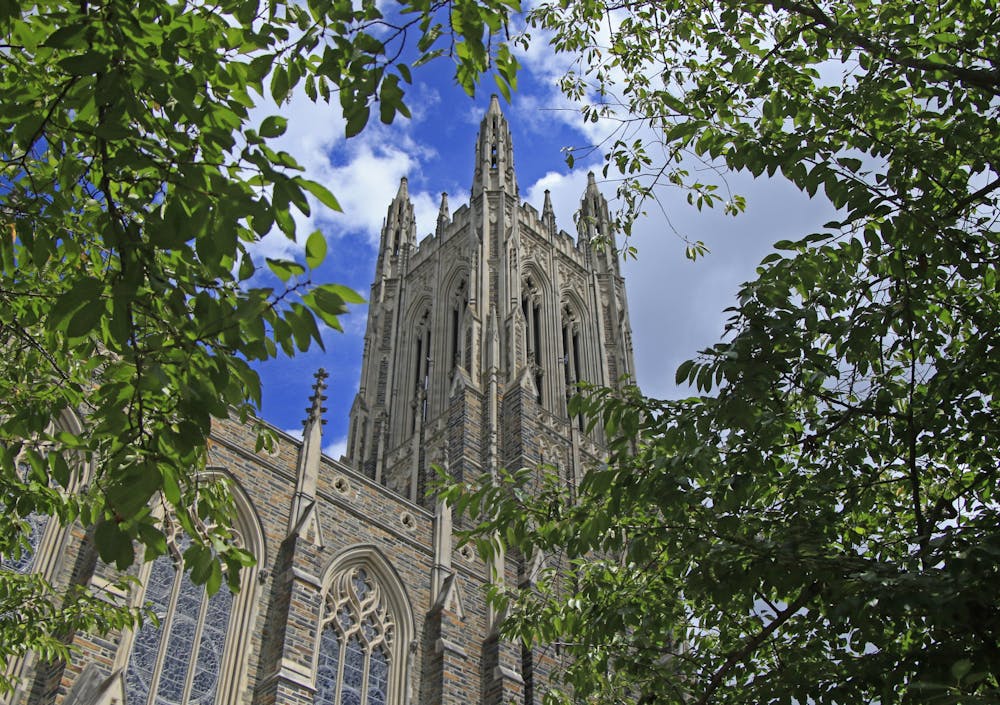The Mary Lou Williams Center for Black Culture hosted its annual Black History Month keynote lecture on Wednesday in Page Auditorium, featuring American author, filmmaker and activist Kimberly Latrice Jones.
Jones was selected by Abele Ambassadors at the MLWC because of her work and presence in the area of Black resistance, the theme of this year’s Black History Month. During her speech, she highlighted the variety of ways individuals and communities can engage in resistance efforts.
“Whatever it is that you do … you have a way in which you can resist,” she said. “And I believe there’s resistance in this room today.”
Her keynote speech was accompanied by remarks from Candis Watts Smith, associate professor of political science, and a performance by United in Praise, Duke’s student gospel choir.
Jones began her speech by presenting a series of historical “unsung heroes” of Black resistance in America. She touched on the stories of individuals from Elizabeth Key Grinstead, one of the first Black women to successfully sue for her freedom, to her own mother, who persevered throughout her career amid persistent discrimination.
“Celebrating Black History Month is about elevating the stories that we often don't hear. I think Mrs. Jones's speech was a key example of voices and names of people that we don't often know about who have changed our lives,” Dawna Jones, assistant vice president for identity centers and community affairs, told The Chronicle.
Jones’ speech also highlighted examples of student resistance, including the Allen Building Takeover at Duke in 1969 and the Black Student Strike at University of Wisconsin-Madison.
Latrice Jones went on to explain how Duke students can personally participate in resistance efforts — by holding their local government accountable.
“Ignore your executive branch, and pay attention to your legislators,” she said.
To illustrate the power of local action, she described her own success in striking down unfair legislation and creating better outcomes for her community through petitioning her City Council. She also spoke about the power of resistance on a national scale through her efforts to indict police officers for brutality, specifically in the cases of Ahmaud Arbery and Jamarion Robinson.
Her reliance on personal experiences seemed to inspire hope and action among audience members at the event.
“She clarified a lot of things that I wonder about as an activist, and just gave me a lot of hope for what I can do and what the Black community can do to progress,” said sophomore Brianna Johnson.
Samaiyah Faison, assistant director of the MLWC, said that she hopes the speaker event “gives the students and people who [came] an understanding of what Black resistance is and what Black activism is.”
The MLWC will host a variety of other activities and events in celebration of Black History Month. These include a Black History Month movie screening, a Paint n’ Chill night for graduate and professional students, and Breaking Bread, a discussion over a catered meal about Black resistance.
Get The Chronicle straight to your inbox
Sign up for our weekly newsletter. Cancel at any time.

Sana Pashankar is a Trinity senior and a staff reporter of The Chronicle's 118th volume.

